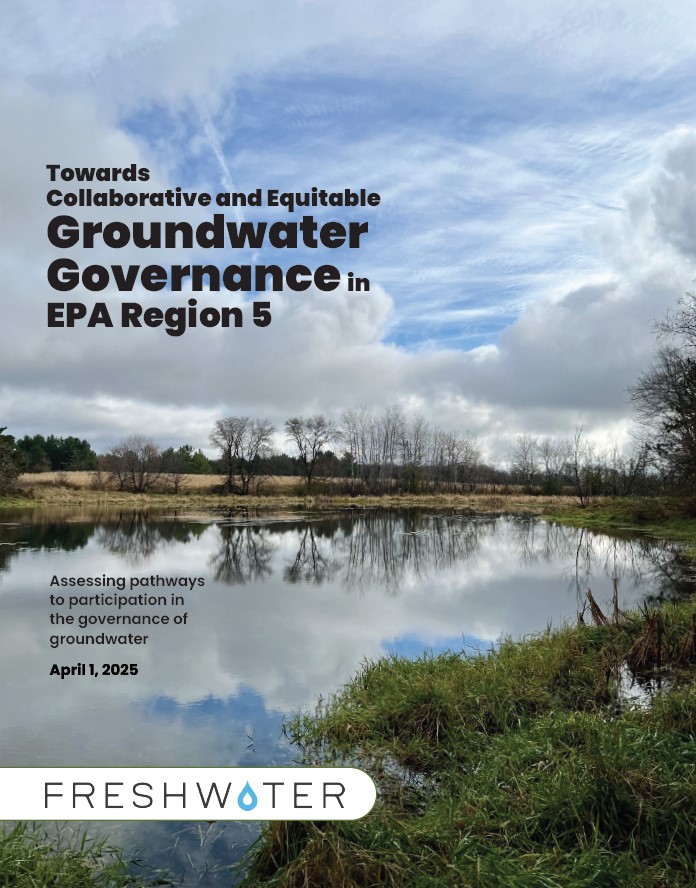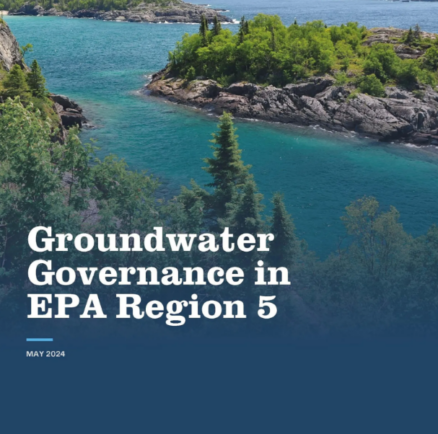Groundwater Governance
Groundwater is complex, unseen and often misunderstood. Even in places like the Great Lakes region – known for its abundance of natural lakes, rivers and streams – the groundwater that supplies drinking water and supports aquatic ecosystems is vulnerable to depletion. The variability of precipitation in a particular area, along with the underlying geology, plays a critical role in the availability and sustainability of groundwater use.
Groundwater supplies 75 percent of Minnesota's drinking water and at least 90 percent of agricultural irrigation water. That's why this is one of Freshwater's key focus areas: ensuring groundwater sustainability through restoration, governance and protection.
Groundwater Governance in the Great Lakes Region
Freshwater has led multi-year projects to study how groundwater is governed across the region by the states of Illinois, Indiana, Michigan, Minnesota, Ohio and Wisconsin, and 35 Tribal nations. The study was followed by policy recommendations and then active collaboration and engagement with water managers and community members to help create a more equitable and effective structure for ensuring clean and sustainable groundwater – now and in the future.
Phase II (2023-2025)
In Phase II Freshwater identified four geographic areas where aquifers are being shared across political jurisdictions. We convened people in these areas to identify local challenges and possible ways to address these challenges. Through these workshops, we also fostered cross-jurisdictional connections and relationships. We harvested the information from the gatherings and supported it with research on existing policy and legal structures from around the world.
This report lays out the reasoning for our approach, comparisons of two metropolitan and two rural settings, and the best practices and existing barriers that emerged. We hope this work lays a foundation for regional groundwater governance systems rooted in a shared understanding of the importance of groundwater to inclusive prosperity, ecological health, while addressing past harm and future climate and population stressors.
Phase I (2021-2023)
In Phase I of this project, Freshwater assessed the status of groundwater knowledge and the current institutions managing it, along with various governance approaches and challenges.
We concluded that the current structure across the region, cobbled together over decades in response to different stressors and crises, does not adequately provide for a participatory and inclusive groundwater management system. It is not always founded in adequate technical knowledge, and it is not coordinated around local, shared aquifers. There are many opportunities to better connect and inform water users, and to plan for the region’s future prosperity.

